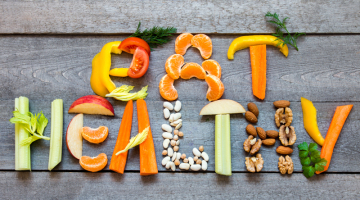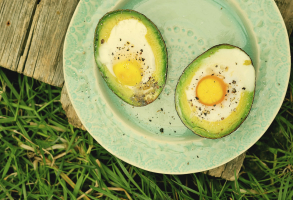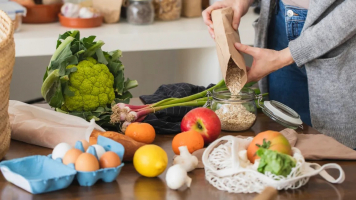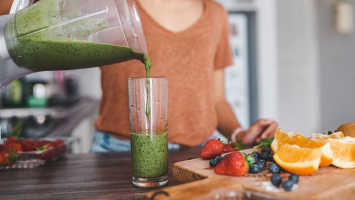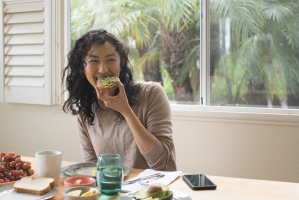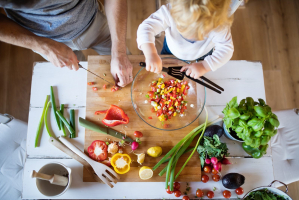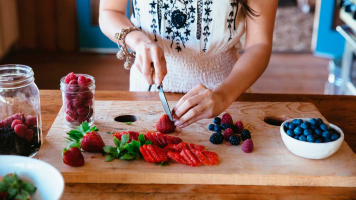Top 10 Effective Ways to Eat Less Processed Food
Any food that has been cooked, canned, frozen, or packed is considered to be processed. One of the best strategies to improve your health and the quality of ... read more...your diet is to cut back on highly processed foods. In fact, one of the first health advice when people ask experts for nutritional advice is to limit their intake of processed foods. Below are some strategies to help you eat less processed food that are simple, sustainable, and realistic.
-
When the munchies strike, it's simple to grab a quick fix of junk food, especially if it's a habit and there aren't many healthy options in your cupboards. Fortunately, there are many simple and smarter snacks available that will satisfy your hunger.
Making healthy choices may be made much easier by having your kitchen well-stocked with a variety of portable, nutrient-dense snacks. Fresh fruit, mixed nuts, edamame, and vegetables with hummus are some healthy snacks you can try. You can also prepare some simple snacks in advance if you have additional time. Some delicious snacks you can quickly prepare and save for later are hard-boiled eggs, turkey roll-ups, homemade kale chips, and overnight oats. A little dark chocolate is a nice treat, and a higher cacao content means fewer sugars and more antioxidants. Look for at least 70% cacao!
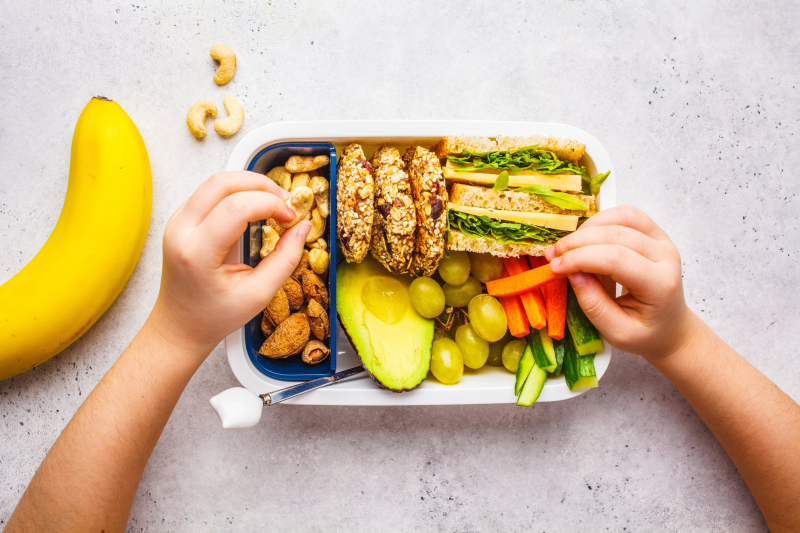
Keep healthy snacks on hand 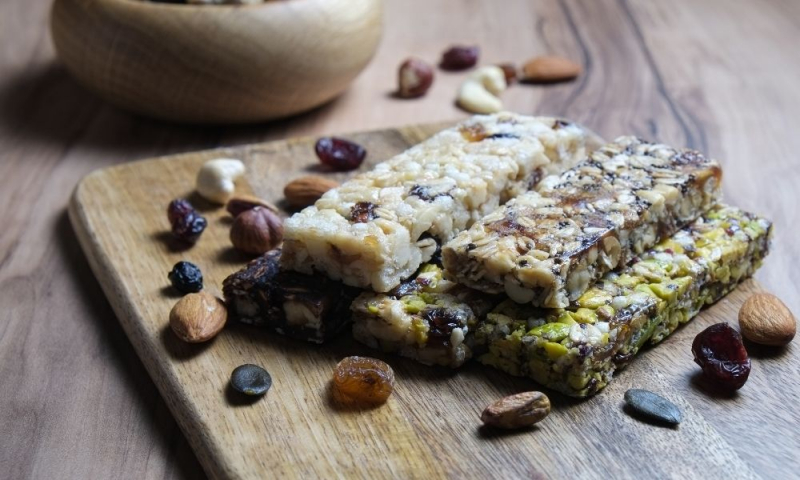
Keep healthy snacks on hand -
Starting to replace processed foods with healthier whole foods is one of the simplest strategies to lower your consumption of processed foods. A new study published in The British Medical Journal found that consuming a high number of refined grains, such as croissants and white bread, is associated with a higher risk of major cardiovascular disease, stroke and death.
In particular, you can substitute whole grain alternatives for refined grains like white pasta, rice, bread, and tortillas, such as brown rice, whole grain pasta, bread, and tortillas. Whole grains have been demonstrated to be more nutritious and richer in fiber, as well as to be protective against diseases like heart disease, diabetes, and some types of cancer. It might be more successful to find innovative methods to incorporate servings of whole grains into foods that people already eat. For example, you could be using whole grain quinoa or amaranth as a base for snack foods, or incorporating whole grain into a pizza crust.
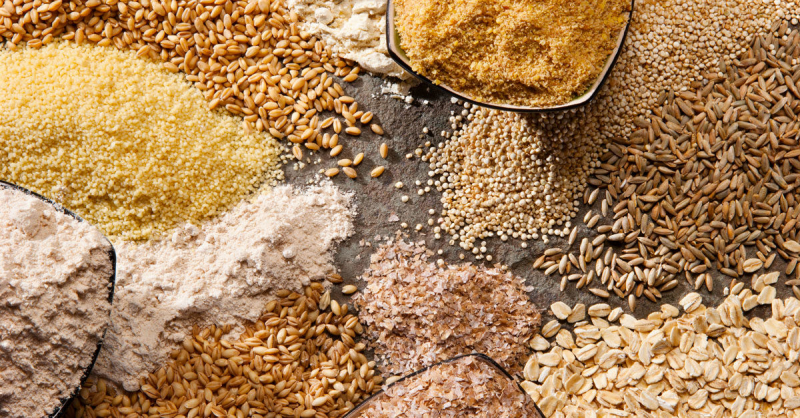
Swap refined grains for whole grains 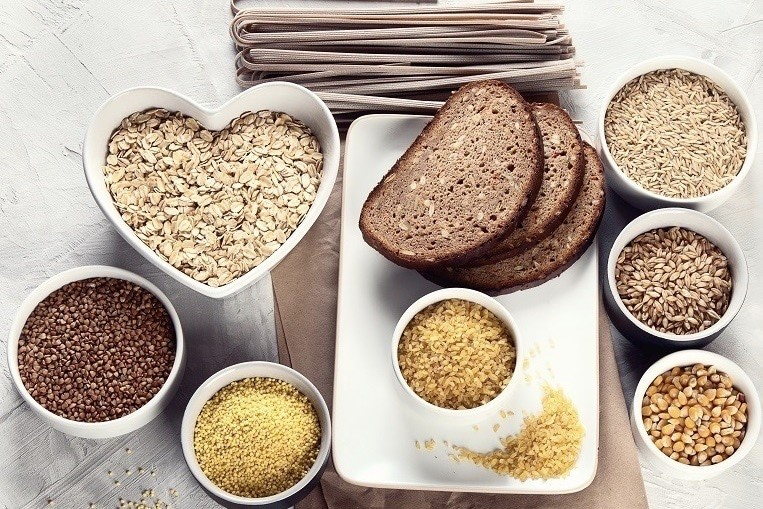
Swap refined grains for whole grains -
If you're feeling inspired, recreate your favorite processed foods in your kitchen to add a healthy twist. This provides you with total control over what goes on your plate and allows you to try out interesting new ingredients.
For instance, you can prepare vegetable chips by tossing thin slices of potato, zucchini, turnip, or carrot with a little salt and olive oil, then baking them until they are crisp. You can make chia pudding, air-popped popcorn, granola bars, fruit leather, and other nutritious alternatives to processed foods at home. Instead of ordering takeaway, you can make food from your favorite restaurants at home. Including more ingredients like fruits, vegetables, nuts, seeds, and legumes, not only saves money but also makes it simpler to eat more whole foods.
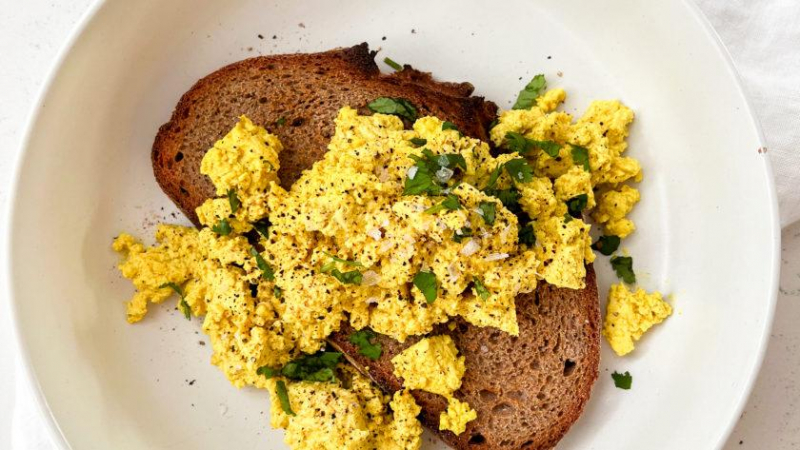
Get creative in the kitchen 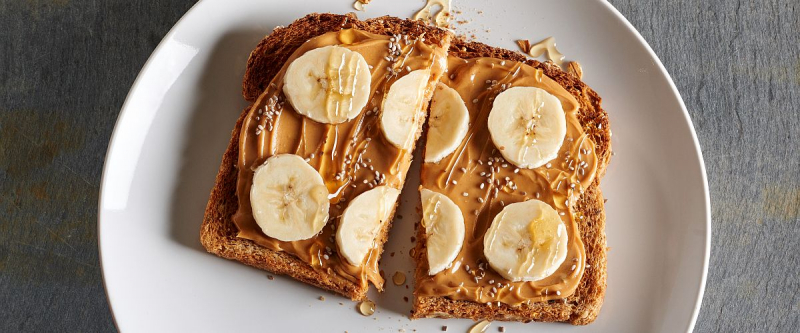
Get creative in the kitchen -
Sugary drinks with little to no vital nutrients include soda, sweet tea, fruit juice, and sports drinks. These drinks are often full of added sugars, which can be extremely detrimental to your health.
A great method to reduce your consumption of processed foods and improve the quality of your diet overall is to gradually substitute these drinks for water throughout the day. If plain water isn't your favorite beverage, try sparkling or flavored water. For an additional taste boost, you may also try soaking fresh fruit or herbs in water. One tip to drink more water is always keep a reusable water bottle with you. You can drink more water by carrying a water bottle around with you all day. Having a reusable water bottle makes it simple to drink water wherever you are, whether you're on the go traveling, or at home, work, or school.
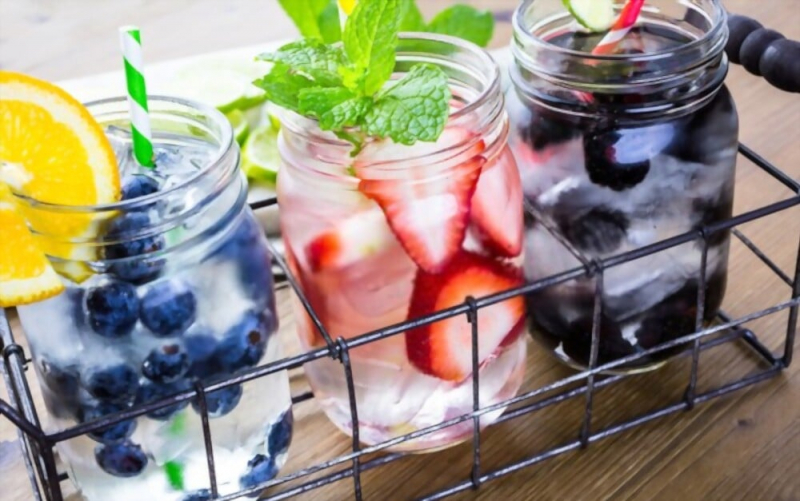
Drink more water 
Drink more water -
Once or twice a week, prepare a significant amount of food so that you always have plenty of nutritious meals on hand in the fridge, even if you're too busy to cook. This smart meal planning method gives you a head start on the week, often leading to faster, healthier, stress-free eating.
Additionally, it can significantly reduce the temptation to stop at a drive-through on the way home or to rely on frozen convenience foods when you're pushed for time. Set up a certain time to prepare your meals and choose a few recipes to make each week to get started. In order to prevent recurrence during the week, you can find some recipes that call for the same ingredients. Try picking meals that contain different vegetables and protein-rich foods, as well as varied complex carbs such as brown rice, quinoa or sweet potatoes.
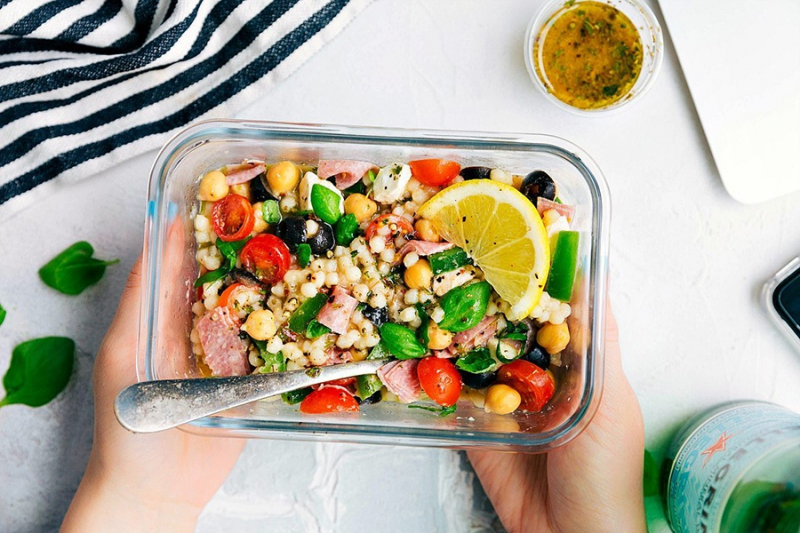
Try meal prepping 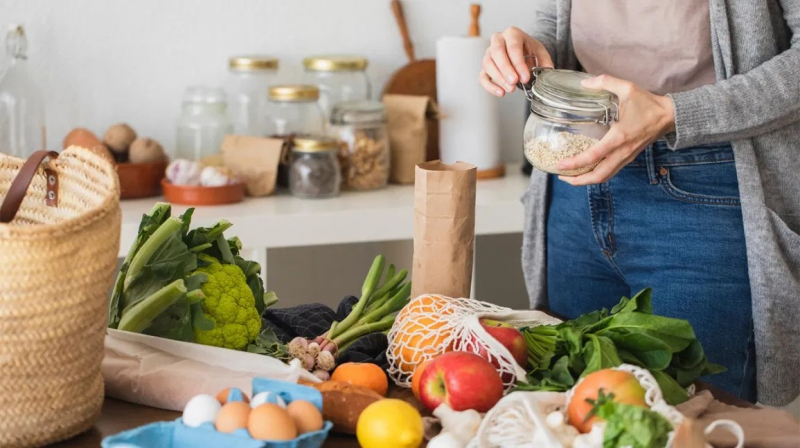
Try meal prepping -
It's crucial to include vegetables in your meals. Vegetables are full of vitamins, minerals, and antioxidants that improve your health and prevent disease. Due to their low-calorie count, they are also helpful for weight management.
Include at least one serving of veggies when you prepare meals at home to enhance your consumption of healthy, unprocessed foods. The high nutritional value and high fiber content of vegetables help you feel satisfied between meals, which reduces hunger and satisfies cravings. You can incorporate vegetables into your eating plan in some unique ways so that you never get sick of eating them. This can be as simple as sautéing broccoli for a quick side dish, adding spinach to scrambled eggs, or adding carrots or cauliflower to soups or casseroles.

Eat more vegetables 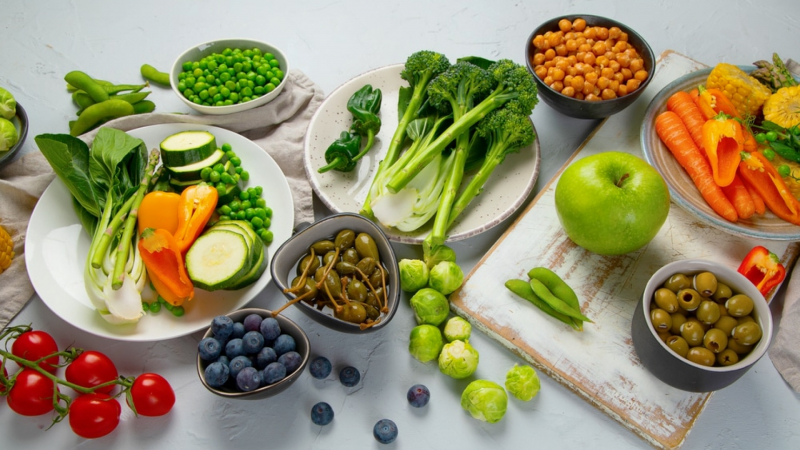
Eat more vegetables -
A commitment to a lifestyle change is necessary for eating behavioral change. Your grocery store is a good place to begin. In order to do this, you must change the foods you buy, how frequently you buy them, and the stores you frequently visit.
When you don't have any processed food on hand, it's much simpler to keep your consumption under control. Fill your shopping cart with fresh produce, whole grains, legumes, and other minimally processed foods the next time you go shopping. The middle aisles, which are often home to processed snacks and junk food, can be avoided by staying on the store's perimeter. When shopping, make sure to read the labels on the foods you enjoy. Avoid foods that are high in trans fat, sodium, or added sugar whenever feasible.

Switch up your shopping routine 
Switch up your shopping routine -
It's simpler than you would think to choose healthier foods. You may move to a healthy lifestyle without giving up all the things you enjoy by making a few easy, everyday changes. The key is to replace foods high in calories, fat, salt, and sugar with those that are healthier, such as more fruits, vegetables, and whole grains.
For many processed food, there are countless healthy alternatives. These simple food swap ideas can help cut down on sugar, salt and fat in your and your family's diet. Some are listed below:
- Change to a cup of oatmeal with fresh fruit instead of your sugary morning cereal.
- Instead of using the microwave, make your own popcorn on the stove.
- Instead of using store-bought dressings, prepare a homemade vinaigrette with vinegar and olive oil to sprinkle over salads.
- To replace store-bought versions of trail mix with something healthier, make your own using nuts, seeds, and dried fruit.
- Replace the croutons on your salads with nuts or seeds.
- ...
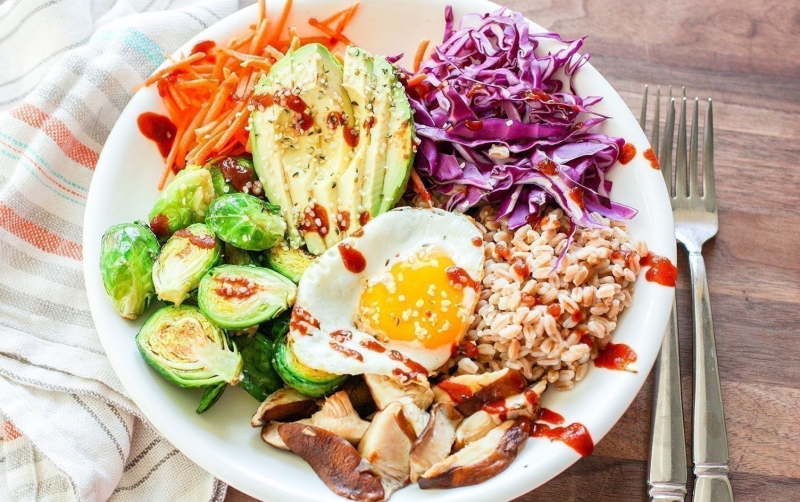
Try some simple food swaps 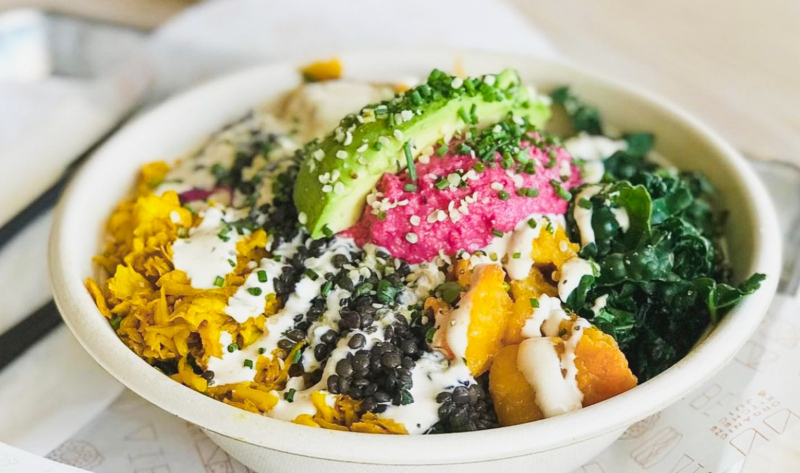
Try some simple food swaps -
Public health officials for years have urged Americans to limit consumption of red meat and processed meats because of concerns that these foods are linked to heart disease, cancer and other ills.
The International Agency for Research on Cancer has classified processed meats including bacon, sausage, lunch meat, and hot dogs as carcinogenic and linked them to a number of negative health effects. Fortunately, reducing your intake of processed meat is quite simple. To begin with, you can simply substitute these foods for less processed meats like fresh chicken, salmon, or turkey. Other sandwich fillings, such as tuna salad, chicken breast, or hard-boiled eggs, may be used in place of packaged lunch meats. As an alternative, you might consume more plant-based proteins like tofu, tempeh, tofu, and beans.
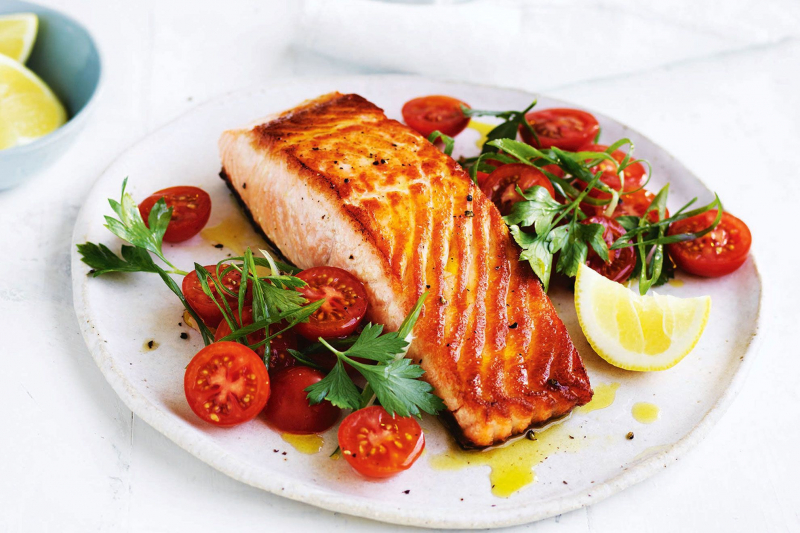
Eat less processed meat 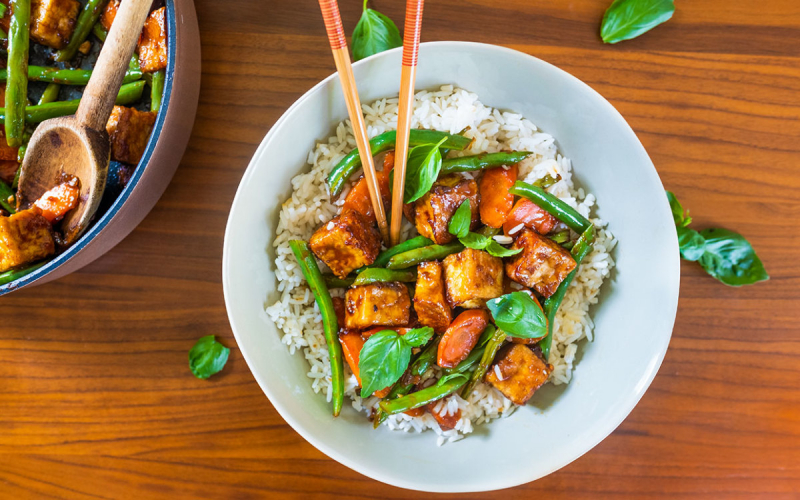
Eat less processed meat -
Making a lifestyle change is challenging, especially when you want to transform many things at once. Lifestyle changes are a process that takes time and requires support. Once you’re ready to make a change, the difficult part is committing and following through.
There's no need to instantly cut out all processed foods from your diet. In fact, gradual change is frequently more successful and long-lasting in the long run. According to some research, making small changes to one's lifestyle can help build habits that last a lifetime and gradually make difficult actions much simpler. Trying with one or two of the above tactics each week before adding additional. Remember that as long as you follow a healthy, balanced diet, you can still enjoy eating out or eating processed foods.

Make changes slowly 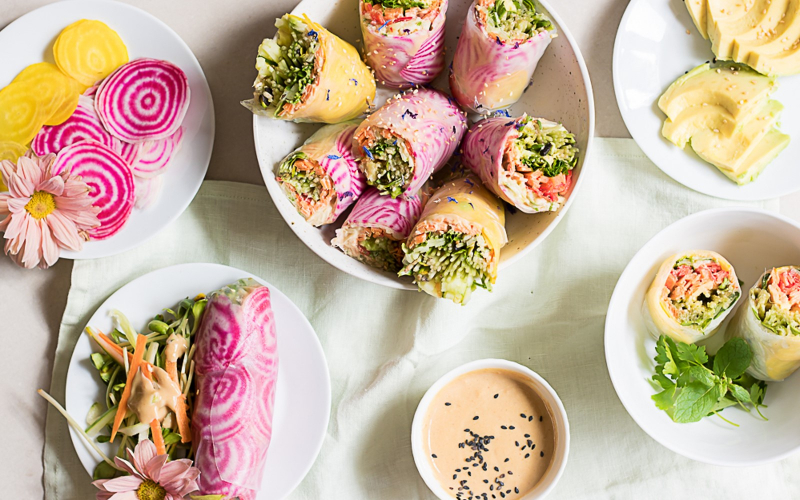
Make changes slowly












